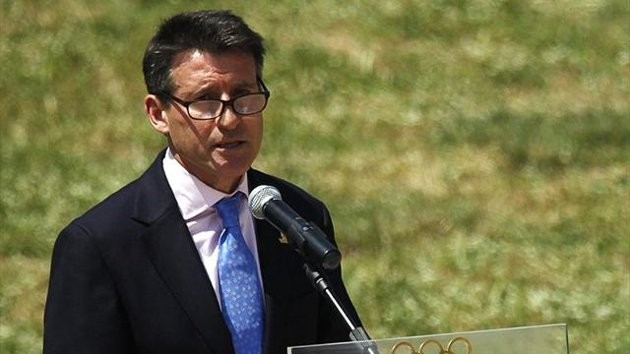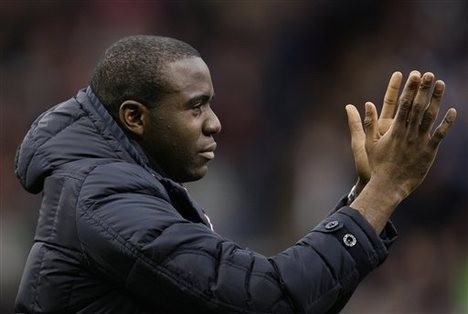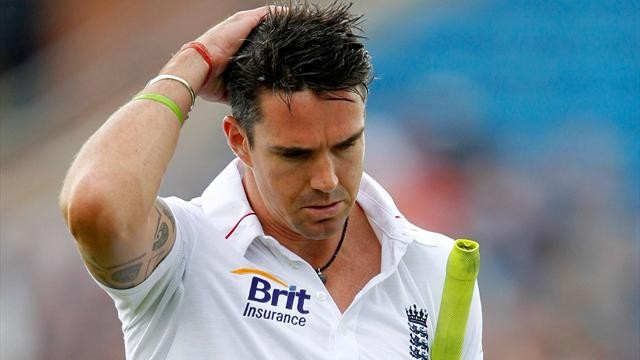Best of 2012: Sporting Heroes and Villains [VIDEO]
IBTimes UK looks at the heroes and villains from the past sporting year
Heroes
Margaret Aspinall
She may call herself the chairman of the Hillsborough Family Support Group, but in practice Aspinall is so much more. She was among the families whose love ones travelled to the FA Cup semi-final between Liverpool and Nottingham Forest on 15 April 1989 and never returned. She has led the fight for justice for 23 years and only in September were the findings of the Hillsborough panel released, exposing a series of cover-ups by South Yorkshire Police and exonerating Liverpool supporters of blame. No medals or trophies to treasure, but something far more important: the truth.
David Brailsford
The cycling guru orchestrated the first great British sporting success of 2012 with Team Sky, as Bradley Wiggins won the Tour de France, with Chris Froome finishing second.Then, at the Olympic Games, he helped Team GB to 12 medals on the bike, eight of which were gold. Back in his Team Sky guise, Brailsford is leading the fight against doping, taking a no-nonsense approach against members of his own team who have committed previous offences.

Lord Sebastian Coe
Delivered one of the most successful Olympic Games in history in a polished, professional and charismatic manner to great acclaim. While the likes of Jessica Ennis, Sir Chris Hoy and Jade Jones were the faces of the Games, Coe provided the infrastructure for the sporting drama to take place, and created a theatre to maximise the character of the Gamesmakers and the passion of the British crowd.
Mo Farah
Born in Somalia but British to his bootlaces, Farah etched his name in long-distance running history this summer. The small matter of defending his European title was just for starters as first he blitzed the field in the Olympic 10,000m on Super Saturday, before storming to 5,000m gold six days later. He became the first British athlete to win either title, and the seventh in history to do the double.
Fabrice Muamba
On 17 March, during an FA Cup quarter final between Tottenham Hotspur and Bolton Wanderers, Muamba collapsed during the first half and was to receive lengthy attention from attending medical personal after suffering a heart attack. The midfielder was clinically dead for 78 minutes but refused to concede defeat; after six weeks in hospital, he miraculously emerged alive. In August, the 24 year old announced his retirement from professional football. However, in this most evocative and inspirational of years, his is the most moving story of all.

Bradley Wiggins
The first British winner of the Tour de France and the Olympic time trial champion, Bradley Wiggins was his country's buccaneering figurehead in the summer of 2012. Now a campaigner for safer conditions for cyclists and the latest recipient of the BBC Sports Personality of the Year award, Wiggins has been a cyclist supreme.
Villains
Lance Armstrong
Found by the United States Anti-Doping Agency to have run the most sophisticated doping programme in sporting history as he recovered from testicular cancer to win the Tour de France seven different times from 1999-2005. Accused of collaborating with the UCI to help cover up his doping, bullying teammates into committing such offences while simultaneously becoming a standard-bearer against doping in sport. A hypocrite, a cheat and a disgrace; the myth of Lance Armstrong was truly buried in 2012.

Joey Barton
A wannabe philosopher on Twitter, Joey Barton did his status as the villain of Premier League football no damage during 2012. His premier moment of madness came on the final day of the regular season, when he was dismissed for elbowing Carlos Tevez and subsequently kicked Sergio Aguero and head-butted Vincent Kompany, jeopardising Queens Park Rangers' survival hopes and entering English football exile simultaneously. A 12-game ban followed, as did a loan move to Marseille.
Norman Bettison
The greatest individual scapegoat following the release of the Hillsborough report, Bettison had his 'peripheral' role exposed in 2012. In fact, Bettison was found to have played a key part in deflecting the blame from police during the tragedy. His role in subsequent investigations by the West Yorkshire Police Authority, from whom he resigned in October, has also been scrutinised, and he could still be charged following the release of the documents by the IPCC.
Frankie Dettori
In a year when the United Kingdom has led the fight against anti-doping, the biggest name in British horseracing was banned early in December for six months after testing positive for a banned substance earlier in the year. Dettori will be eligible to ride in the Epsom derby next year, but may never regain the trust of his supporters or his reputation as one of the finest riders the country has ever seen.

Kevin Pietersen
Pietersen was dropped ahead of the third test against South Africa for exchanging messages with members of the opposing dressing room, during a series which saw England lose their No.1 test ranking. Andrew Strauss resigned as captain after the series, but the scandal saw Pietersen omitted from the T20 World Cup squad and from the original touring party for the test series against India, a decision overturned after Pietersen was 'reintegrated' into the England team to conclude a farcical and embarrassing autumn for the ECB.
John Terry
Charged by the Crown Prosecution Service in December of last year for a racially aggravated assault, but it was in 2012 that the events of 23 October 2011 came to a head for Terry. Stripped of the England captaincy prior to Fabio Capello resigning as manager, Terry was cleared of the charge in July before a separate FA charge of racial abuse for the same incident saw him become the second Premier League player found guilty of the offence and banned for four matches.
Follow the links below to read the IBTimes UK picks of the year, in:-
© Copyright IBTimes 2025. All rights reserved.





















